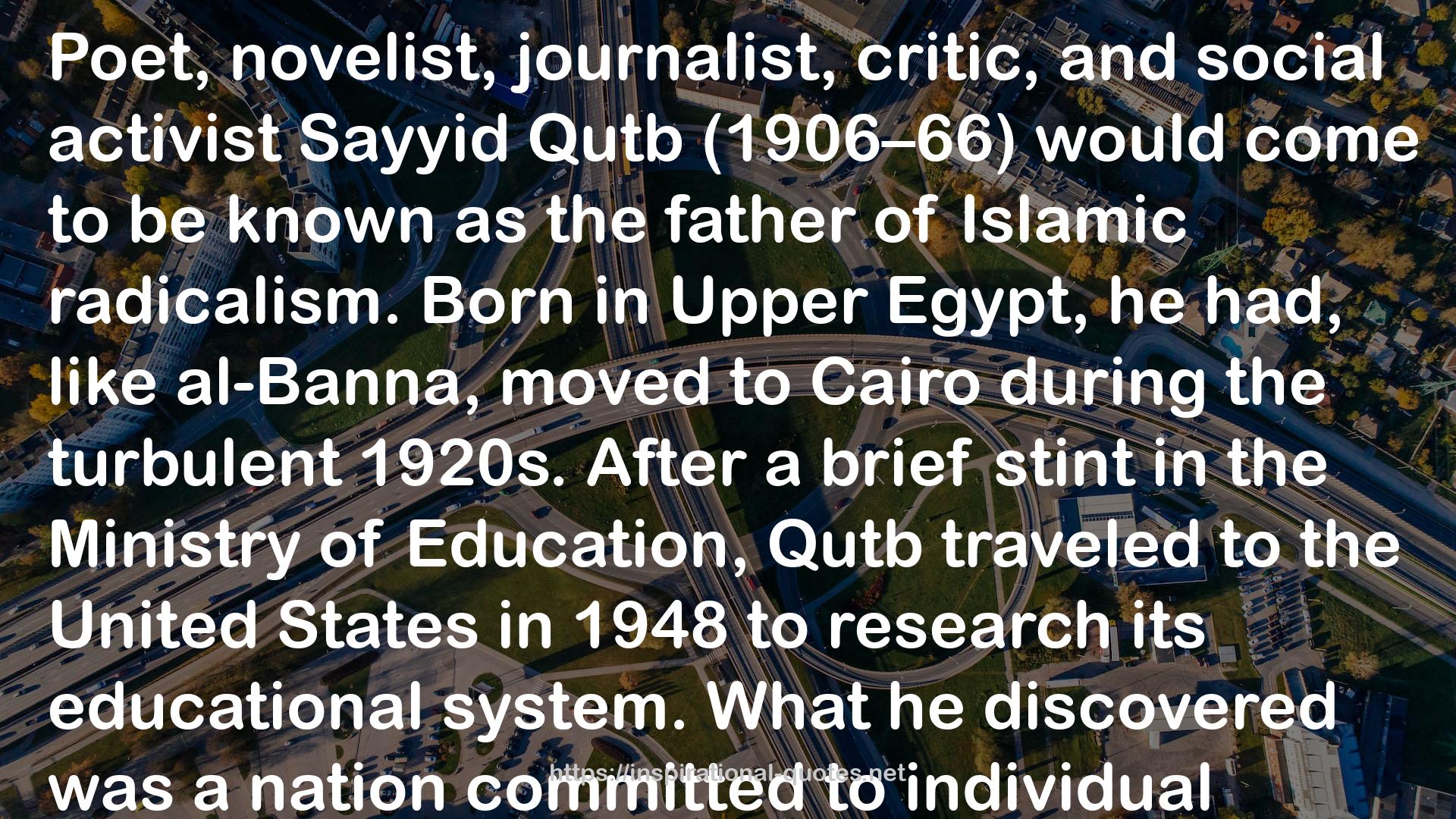" Poet, novelist, journalist, critic, and social activist Sayyid Qutb (1906–66) would come to be known as the father of Islamic radicalism. Born in Upper Egypt, he had, like al-Banna, moved to Cairo during the turbulent 1920s. After a brief stint in the Ministry of Education, Qutb traveled to the United States in 1948 to research its educational system. What he discovered was a nation committed to individual freedom, yet “devoid of human sympathy and responsibility … except under the force of law.” He was disgusted by what he saw as the country’s “materialistic attitude” and its “evil and fanatical racial discrimination,” both of which he blamed on the West’s compulsion to pull “religion apart from common life.” Qutb was equally frightened at the rapid spread of Western cultural hegemony in the developing countries of the Middle East and North Africa, a phenomenon that the Iranian social critic Jalal Al-e Ahmad, Qutb’s contemporary, dubbed Gharbzadeghi, or “Westoxification.” Upon "
― Reza Aslan , No God but God: The Origins, Evolution and Future of Islam
